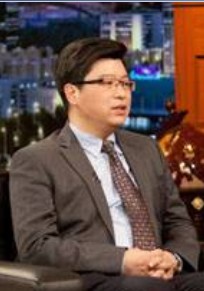To modernize national governance, modernize institutions
 Lin Shangli
Lin Shangli
TheThird Plenary Session of the 18th CPC Central Committee definitively established China’s goal of promoting its national governance system and governance capacity in order to deepen reform comprehensively. Lin Shangli, vice president of Fudan University and a Changjiang Scholar of the Ministry of Education, has devoted his career to studying contemporary Chinese politics. Our reporter Chen Yejun interviewed Lin to discuss China’s governance system.
Q: In entering a crucial phase of reform, why is China emphasizing the modernization of its national governance system and governance capacity?
A: Since China clearly established the socialist market economy in 1992, it has treated the market more as both a tool and strategy in its development process. Today, we fully appreciate the importance of the market mechanism as an institutional arrangement for allocating modern society’s resources and increasing efficiency. We also understand that the market economy is an important achievement of modern civilization and a major strategic alternative for better, faster and more efficient development in China.
The Third Plenary Session of the 18th CPC Central Committee proposed that we should “let market play a key role in the allocation of resources.” This changes the organizational and operational methods of the whole structure of China’s economic order and its way of economic development. Of course, it completely changes the government’s unitary management of the economy from the planned economy era. This logical transformation of economic governance is what twenty years of developing the market economy has led us to, and for China’s future development, it is the only way forward.
Q: Since entering the modern stage of development, China has placed cities at the center of national development and governance. In fact, rural villages naturally create order and are also an important subject of national governance. How does China achieve a balance in urban-rural integration, and how does it do so in a way that promotes the modernization of national governance comprehensively and effectively?
A: For humans’ livelihood—their work and life—the city and the village are both indispensible. Because China has had the urban-rural dual structure for a long time, an invisible barrier has formed between rural residents and urban residents. However, in the process of building a modern state, both urban and rural residents are national citizens and are afforded the same rights and opportunities. To this end, urbanization is for the people, not just a group.
As far as what we should be trying to achieve in our national governance system, the real basis for building rural-urban integration on the level of a modern country is to enable both urban and rural residents to enjoy government services and government-provided resources equally. This doesn’t mean we go out to the countryside and turn all the villages into cities; rather, we strive to focus on creating connections in institutional design, government management, government services and urban-rural development. These endeavors themselves are the actual process of urbanization.
Along these lines, China’s modernization is not about cities eliminating villages. What we are trying to do is loosen regulation in the villages so that farmers can carry on agricultural production and enjoy modern life in the same capacity as their urban counterparts. In integrating China’s basic system, we need to assimilate and reconstruct rural society.
Q: As the three major subjects of national governance, what should the government, the market and society do to position themselves so that they can facilitate a reasonable and orderly modernization of China’s national governance system and governance capacity?
A: In the process of modern state-building, the national governance system is developed along with the governing body. What starts as a unitary body—the government—grows into multiple bodies—the government, the market, society, and so on. In building national order, every type of system forms organic connections and has mutual functions with other systems. Modernizing our national governance system and governance capacity is not a process of singular authority and system operation; it is a complex process that involves many layers of authority and system organization.
We can’t modernize China’s governance just by looking at technical indicators. Simply getting basic support requires us to modernize all kinds of national systems. Only when the government, the market and society are properly playing their roles along reasonable and standard lines, working and making progress together, can we say that the basic form of a modernized national governance system has finally been shaped.
The Chinese version appeared in Chinese Social Sciences Today, No. 549, Jan. 15, 2014
Translated by Zhang Mengying
Revised by Charles Horne
The Chinese link:
http://www.csstoday.net/xueshuzixun/guoneixinwen/87258.html
